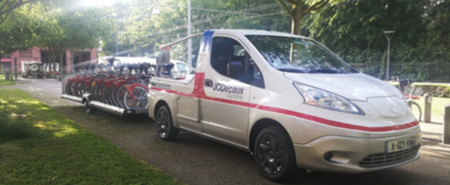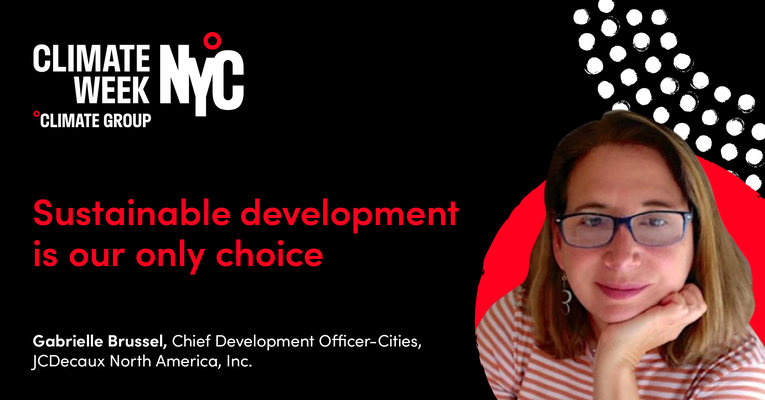Addressing climate change across our planet is a huge challenge and time is short - it is only through behavioral change that emissions reduction can be enabled.
Each season, we hear about devastating storms that are longer and more intense than ever before. From extraordinary heat waves such as last June when the Pacific Northwest endured temperatures that were 40+ degrees higher than average, the highest ever recorded. “Once-in-a-lifetime” snowstorms or freezing, such as those in Texas, which result in extended power outages, infrastructure devastation and even deaths. Experts are recognizing that these are no longer unexpected events, but recurring weather patterns brought about by climate change.
Governments have committed to reducing emissions by 2030 and even to meeting net zero levels within twenty years thereafter, while corporations are increasingly responding with their own commitments to reduce their carbon emissions. And while experts note that the average annual growth rate of global emissions has slowed in the last decade – the connection between intentions and results remains a chasm and many commitments are falling short of their goals.
Making climate-positive choices intentional is imperative - Human behavior is the problem and, thus, making climate-smart choices are an important part of the solution.
Without behavioral change, scientists warn, the goal of limiting global warming to 1.5% is not achievable. The 2022 report released by the Intergovernmental Panel on Climate Change assessed demand services and social actions of mitigation, for the first time, reporting that changing human demand is a key pillar alongside policy, technology and adapted infrastructure.
92% of people surveyed by Kantar want to live a more sustainable life, however, less than 20% had channeled that intention to their lifestyle choices. With a virtuous business cycle of providing services funded by the advertising placed on those services, sustainable development has always been the goal of JCDecaux and it is continuing to work with its stakeholders to make sustainable development front and center in its business operations and for its partners. Communication about behavior is critical – people acting in concert is critical and communication is a driver helping to tackle climate change.
JCDecaux is driven to develop services that sustainably improve urban experience and we have partnered with brands, companies, cities, public authorities, and citizens to help tackle climate change.
From pioneering active transportation, such as the globally recognized self-service bicycle-share scheme, Cyclocity, now available in over 75 cities across the world to introducing ‘green bus shelters’, including the experimental Filtreo, which reduces transit riders’ exposure to pollutants, while continuing to reduce its greenhouse gas emissions, which lessened by 83% between 2014 and 2021 – JCDecaux has focused on supporting sustainable behavior for decades. Reductions in emissions have been achieved through technology adoption – such as equipping new furniture with LED technology to reduce energy consumption and eco-friendly mobility strategy, including the use of electric-powered vehicles (even to tow trailers) – as well as through processes changes.

Having institutionalized sustainability for almost two decades, JCDecaux received its first ISO 140001 certification in 2004 and created a Sustainable Development and Quality Department over 15 years ago. In May 2022, JCDecaux launched its most ambitious platform yet, the 2030 ESG Strategy, setting out concrete sustainable development objectives for the three pillars of sustainability – environment, social values and ethical governance. Continuing to champion responsible innovation as we all work toward de-carbonization, this roadmap details commitments for the next eight years – from systemizing eco-design and developing a robust measuring tool of its environmental footprint by 2025 to being a world-wide public platform for the United Nations 2030 Agenda and its 17 Sustainable Development Goals.
We know that our clients, suppliers, team members and governments want to partner with a sustainable company that is committed to real action. 55% of consumers value sustainability when they choose a brand while 71% of employees and jobseekers want to work for a company that is environmentally sustainable. At JCDecaux, we are leading with purpose by placing sustainable choices at the core of the decisions we take. In 2014, JCDecaux committed to cover 100% of its energy consumption from renewable sources by the end of 2022 and this goal is on track. In fact, JCDecaux is the only out-of-home company to have committed to the RE100. Changing daily routines is a huge lift and we acknowledge that. But big and small, we all must focus on our behavior as catalysts for climate action – after all, this is still the only planet we have.
